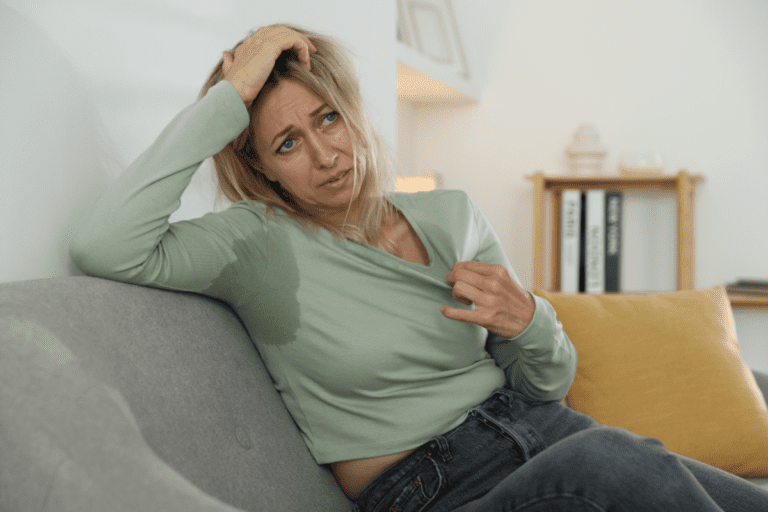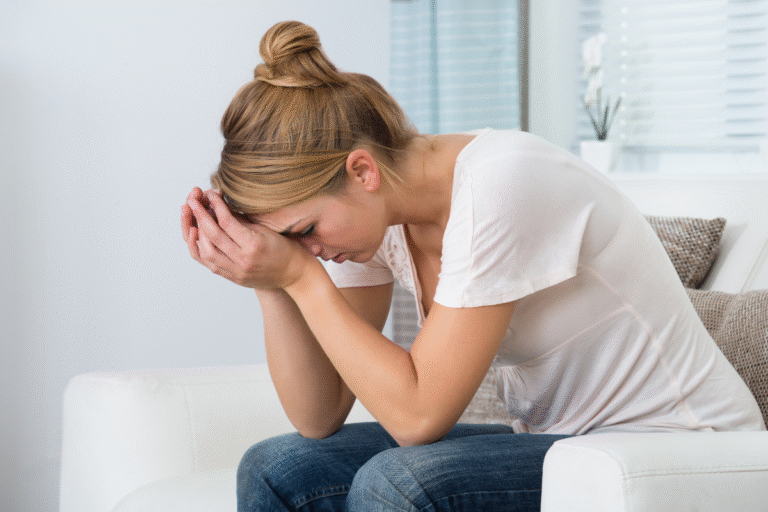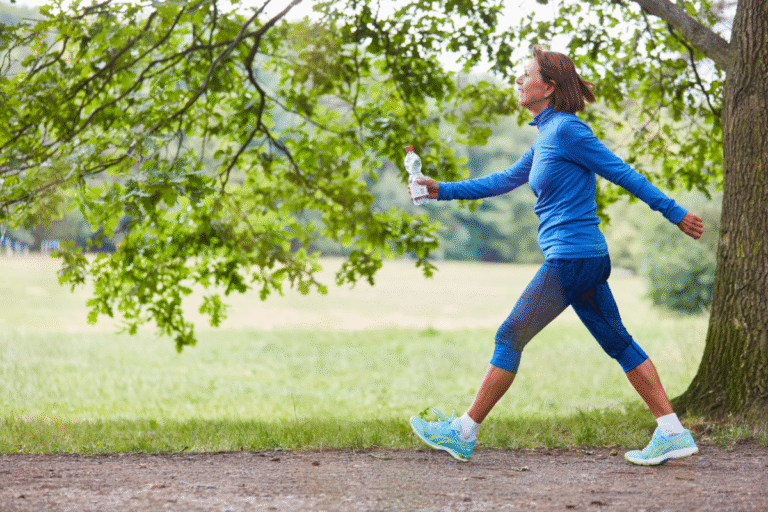
You’ve woken up drenched in sweat… again.
Your sheets are soaked. Your brain feels foggy. Your patience is gone. And you haven’t had a good night’s sleep in weeks.
If you’re deep in perimenopause or menopause, you know the misery of hot flashes and night sweats all too well.
And even if you’re already on hormone therapy, it can take time for relief to kick in—or you may need a dose adjustment if your symptoms are returning.
At Antigravity Wellness, we see this all the time. And the good news is, there are non-hormonal options that can help take the edge off while your body recalibrates.
This post is for:
- Women who cannot take hormone therapy due to medical reasons or personal preference
- Women who are waiting for their HRT to kick in (it can take 6–12 weeks for full effect)
- Women whose current HRT dose isn’t working well anymore and need short-term relief while adjusting
Let’s walk through science-backed, provider-guided strategies you can try to get some relief—starting tonight.
Lifestyle Shifts That Make a Big Difference
Before reaching for supplements, these small changes can greatly reduce hot flash frequency and severity:
1. Cool Your Sleeping Environment
- Keep your bedroom under 68°F (20°C)
- Use a cooling mattress pad or moisture-wicking sheets
- Keep a fan near your bed
- Try a chill towel or cold water bottle on your neck at night
2. Track Your Triggers
Common hot flash triggers include:
- Spicy foods
- Alcohol (especially red wine)
- Caffeine
- Stress or anxiety
- High-carb or high-sugar meals
Keep a symptom diary to identify and minimize your personal triggers.
3. Breathwork and Nervous System Regulation
High cortisol and poor stress resilience can worsen vasomotor symptoms like hot flashes. Try:
- 4-7-8 breathing before bed
- Gentle yoga or stretching
- Meditation or tapping (EFT)
- Adaptogenic herbal teas like ashwagandha or holy basil (more on this below)
A 2022 study in the journal Menopause found that paced respiration and mindfulness practices significantly reduced hot flash frequency in women over 40 (Sood et al., 2022).
Supplements That May Help
Always talk to your provider before starting any supplement—especially if you’re taking medications or managing a chronic condition. These supplements can interact with SSRIs, anticoagulants, thyroid meds, and more.
1. Black Cohosh
Used traditionally for hot flashes, night sweats, and mood swings.
- May help reduce hot flash frequency and intensity
- Mechanism likely involves serotonin modulation, not estrogen mimicry
- Found in brands like Remifemin®
Caution:
- May interact with liver medications or history of liver disease
- Not advised for those with hormone-sensitive cancers
- Always use a standardized, reputable brand
A 2010 meta-analysis in Phytomedicine showed Black Cohosh can reduce hot flashes by up to 26% compared to placebo (Leach & Moore, 2010).
2. Pycnogenol® (French Maritime Pine Bark)
- Shown to improve sleep, hot flashes, mood, and skin elasticity
- Has antioxidant and anti-inflammatory effects
Caution:
- May lower blood pressure—use cautiously with antihypertensives
- Avoid with blood thinners due to increased bleeding risk
3. Myo-Inositol + D-Chiro Inositol
- May reduce night sweats, mood swings, and sleep disturbances
- Also supports insulin sensitivity and mood
Caution:
- Can lower blood sugar—monitor closely if on diabetes medications
- May cause dizziness or GI upset if taken on an empty stomach
4. Adaptogenic Herbs: Ashwagandha, Rhodiola, Holy Basil
- Support adrenal health and cortisol balance
- May reduce hot flash frequency triggered by stress or poor sleep
- Often included in combination stress support formulas
Caution:
- Ashwagandha can interact with thyroid meds and sedatives
- Rhodiola may increase anxiety in some people—start low
- Not appropriate in pregnancy
A 2021 study in Complementary Therapies in Medicine found that adaptogens improved vasomotor and psychological symptoms in perimenopausal women (Cramer et al., 2021).
5. Magnesium Glycinate
- Calms the nervous system and improves sleep
- May reduce nighttime hot flashes
- Supports hormone detox and blood sugar balance
Caution:
- Can interact with certain antibiotics and bisphosphonates
- High doses may cause loose stools—start low
6. Evening Primrose Oil (EPO)
- A source of GLA (gamma-linolenic acid), which supports prostaglandin balance
- May ease breast tenderness, mood swings, and night sweats
Caution:
- May interact with anticoagulants or seizure medications
- Use with caution if you have bleeding disorders or epilepsy
Additional Therapies to Consider
Cognitive Behavioral Therapy (CBT)
CBT has been shown to significantly reduce distress caused by hot flashes, even if it doesn’t eliminate them. It improves sleep, mood, and coping ability.
Acupuncture
Several trials suggest acupuncture may reduce the frequency and severity of hot flashes—especially when done regularly for several weeks.
A Note About SSRIs and SNRIs
While not considered supplements, certain low-dose antidepressants (like paroxetine, venlafaxine, and escitalopram) have been shown to reduce hot flashes for some women—even those without clinical depression.
These may be used short-term and at low doses until hormones stabilize. Always discuss risks and benefits with your prescribing provider.
Reminder: Always Talk to Your Provider First
Before starting any supplement or therapy, make sure your provider:
- Reviews your current medications
- Screens for liver, kidney, or cardiovascular risk
- Understands your full health history
- Monitors your progress and adjusts as needed
Even “natural” products can interact with medications or make symptoms worse if not used appropriately. This is not a DIY fix—collaboration matters.
Case Study: Meet “Haley”
Name changed for privacy
Haley, 52, had been on estradiol patches for 6 weeks, but her night sweats were still waking her up every 2 hours. Her labs showed progress, but we knew she needed more help now.
We added:
- Magnesium glycinate at night
- A cooling pad and temperature-controlled sheets
- Low-dose ashwagandha to support stress resilience
- Black cohosh for 8 weeks with regular monitoring
Within two weeks, her night sweats were reduced by half. By her 3-month follow-up, her HRT dose was optimized, and she was finally sleeping through the night.
“I just needed someone to take me seriously and help me bridge the gap.”
You Don’t Have to Suffer While Waiting
If your hot flashes are still raging—whether you’re waiting for HRT to work, figuring out your ideal dose, or going hormone-free—there are options.
At Antigravity Wellness, we tailor non-hormonal strategies to your symptoms, medications, and overall health picture.
Need More Help?
🎁 Download our FREE 5-Day Hormone Reset Mini-Course
Learn how hormone imbalance, stress, and inflammation drive your symptoms—and what to do next.
Get it here: https://social.antigravitywellness.com/mini-course-freebie
👩⚕️ Live in WA or OR? Book a Brief Initial Consult with Dr. Nicole Smith
Get immediate support and a custom plan—including both hormone and non-hormone solutions.
Book a call here: https://l.bttr.to/6lFHL
References:
- Leach, M. J., & Moore, V. (2010). Black cohosh for menopause: A systematic review of clinical trials. Phytomedicine, 17(10), 843–849.
- Sood, R., et al. (2022). Nonhormonal management of hot flashes: Mind-body therapies. Menopause, 29(5), 549–556.
- Cramer, H., et al. (2021). Effectiveness of adaptogens for perimenopausal symptoms. Complementary Therapies in Medicine, 58, 102704.
- North American Menopause Society. (2022). Nonhormonal management of vasomotor symptoms: Clinical practice guidelines.




